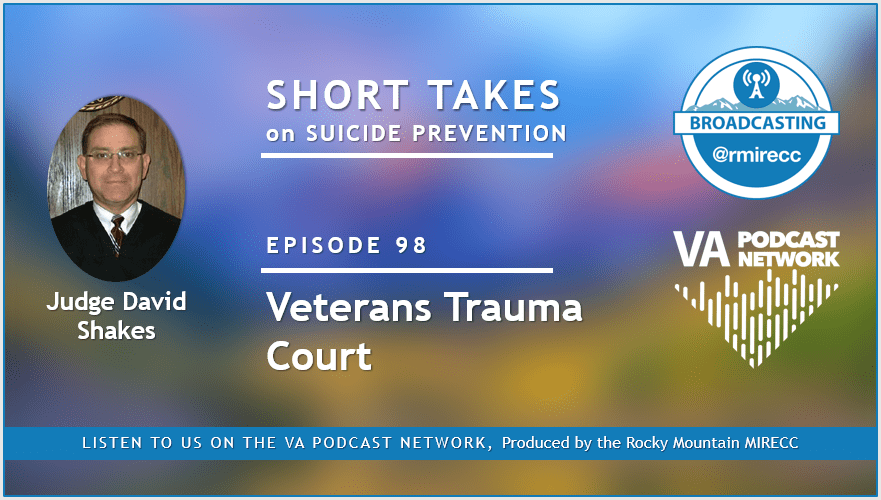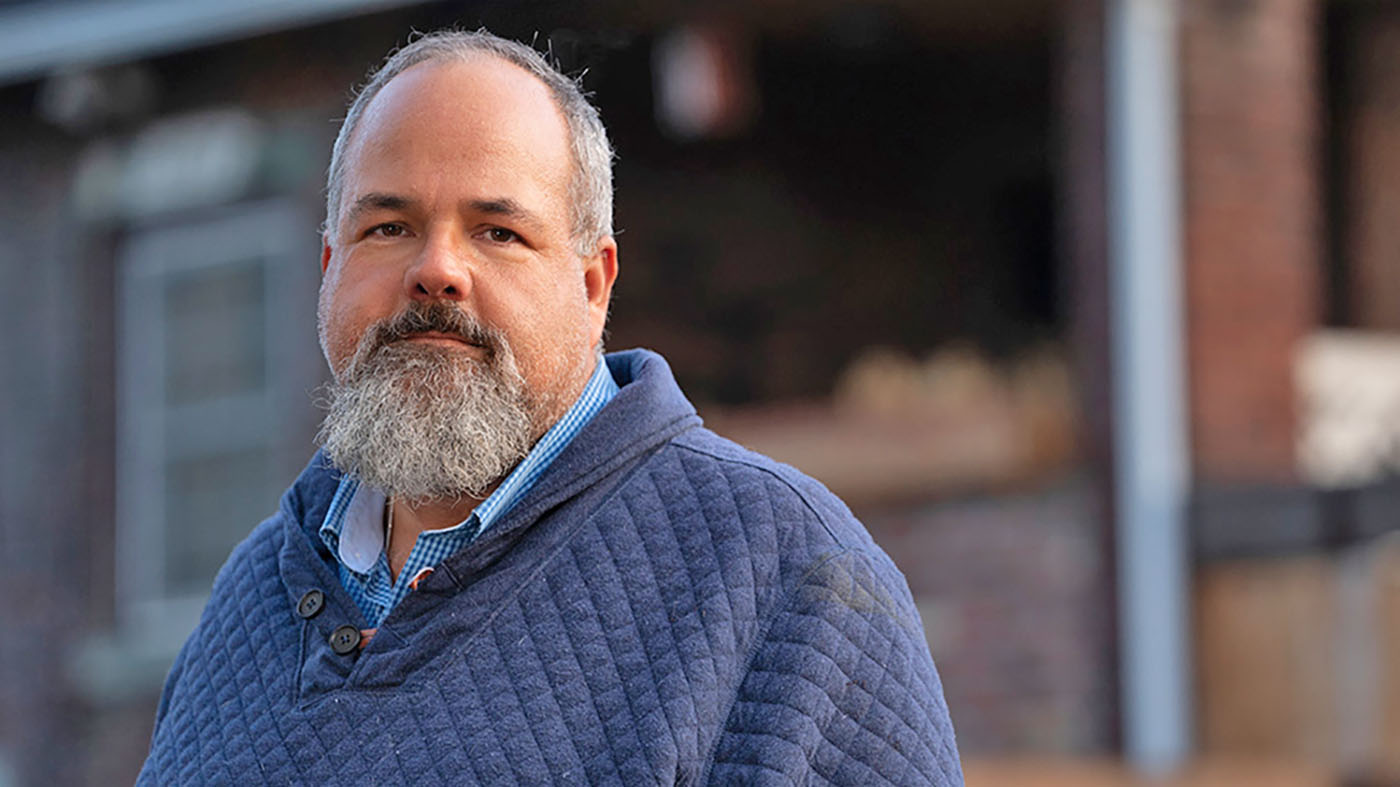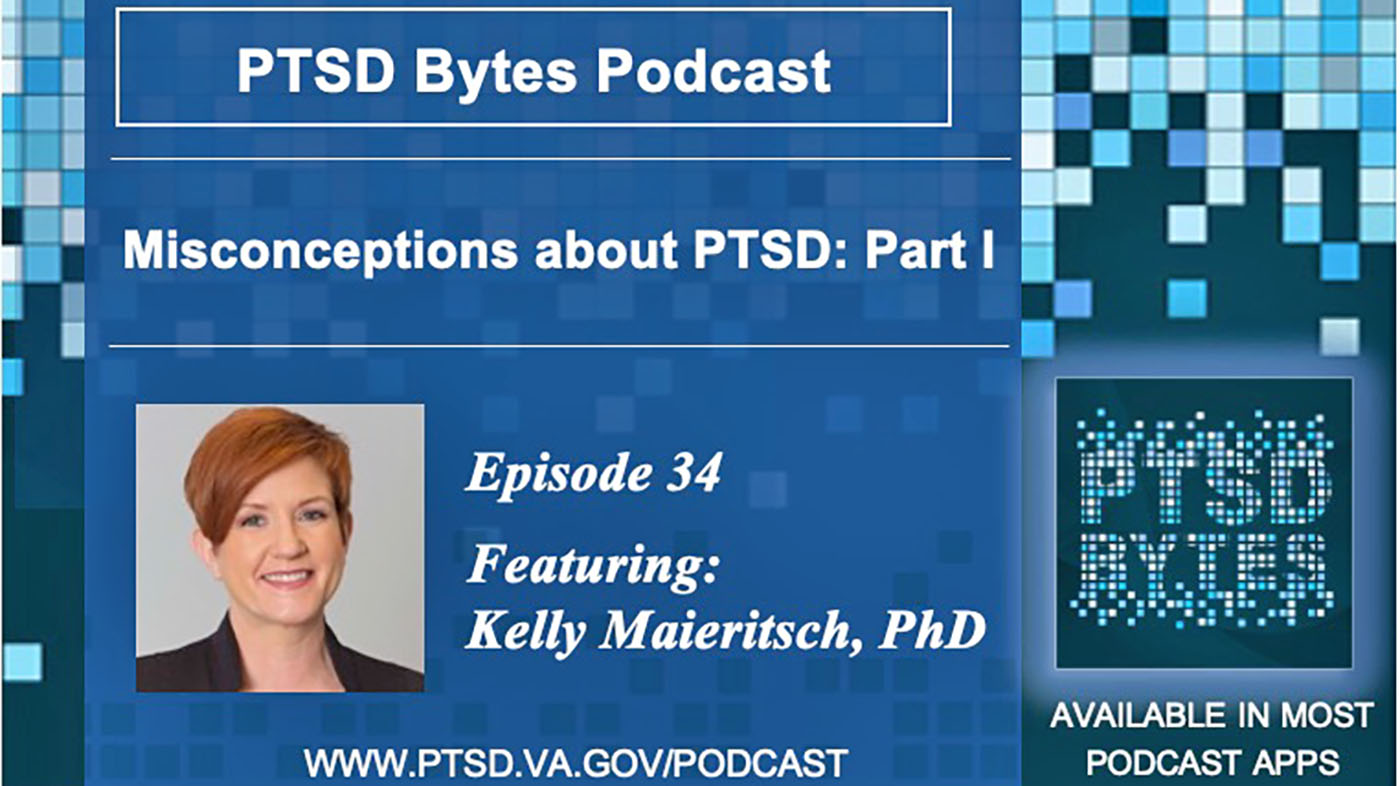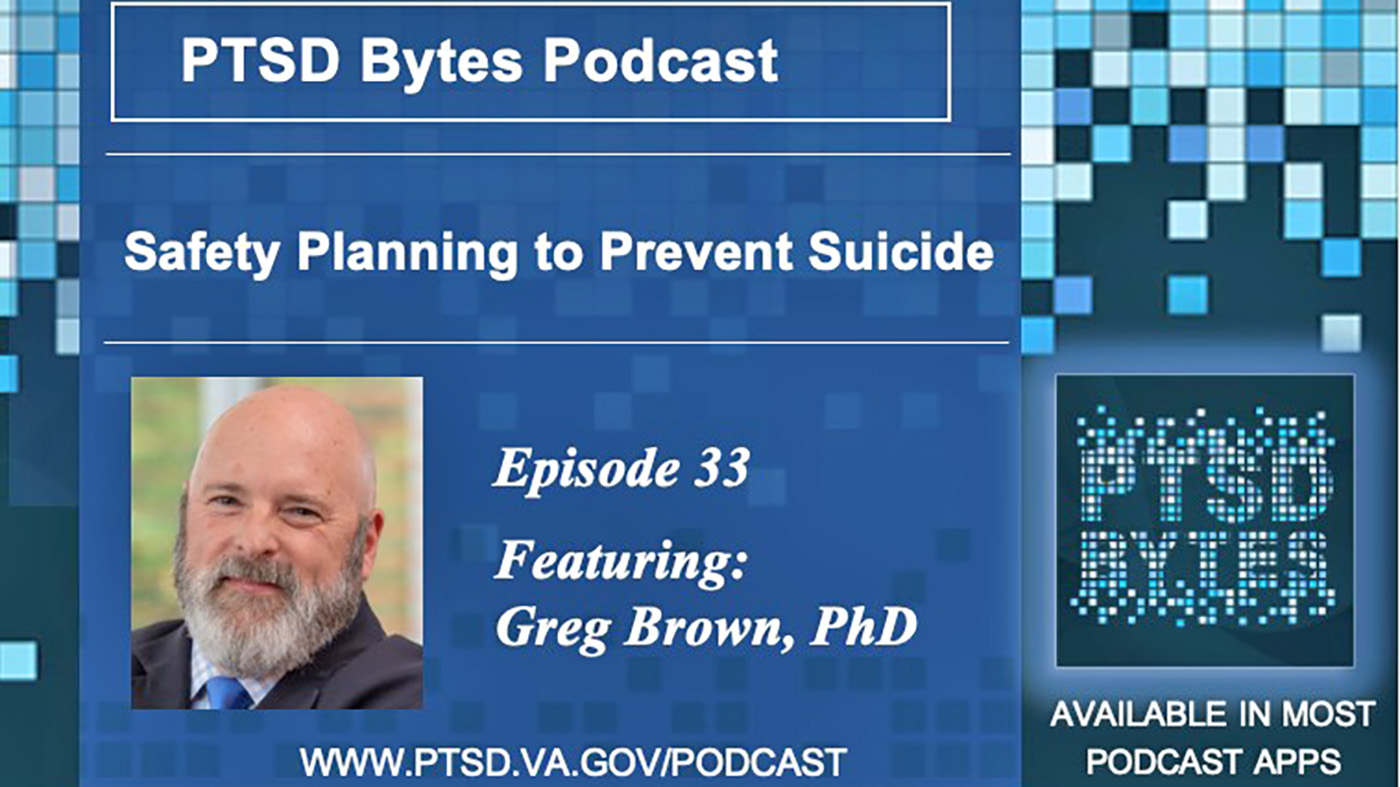Our episode this week is our first as part of the VA Podcast Network, and our 98th overall! In this podcast, Judge Shakes describes how the Veterans Trauma Court is modeled after problem-solving drug courts. The court is for Veterans ready to take responsibility for themselves and their actions. The Veterans are connected to services that might range from the Department of Veterans Affairs, Veterans Justice Outreach Specialists, the Vet Center, the Family Care Center, the Peer Mentor Program, Operation TBI Freedom, and other community organizations. Judge Shakes talks about the role that trauma and/or substance abuse plays in the lives of these Veterans and how the skills they learned and used when in the military can be some of the same skills that help them out of their current straits.
Judge David Shakes presides over the 4th Judicial District Veterans Trauma Court (VTC) which encompasses El Paso and Teller Counties, Colorado. From January 2007 through January 2008, Colonel Shakes was assigned to Task Force 134, Multi-National Force-Iraq as the Rule of Law Advisor and Political/Military Advisor at the US Embassy in Baghdad, Iraq. In that capacity, he worked with Iraqi judges, prison officials, and the Ministers of Justice and Human Rights to improve the Iraqi criminal justice system concerning detention and prosecution of terrorists and insurgents. Prior to serving in Iraq, Colonel Shakes was the Chief Trial Judge of the Army Reserve.
Judge Shakes has anecdotes from his courtroom of success and resilience that he relates with candor. He never forgets that the role of the courts must be to increase public safety while keeping in mind that if the VTC can find alternatives to incarceration these Veterans can return to fully participating in community and society. This is a message of hope and redemption through hard-work and helping hands.
Joe Huggins is a program analyst for the Eastern Colorado GRECC & Rocky Mountain MIRECC for Veteran Suicide Prevention.
Topics in this story
More Stories
Be ready before a suicide crisis by learning about resources that are available. You don’t have to face it alone.
In a two-part series, Dr. Colleen Becket-Davenport discusses some common myths surrounding PTSD with Dr. Kelly Maieritsch.
In this episode of the PTSD Bytes podcast, we speak with with Dr. Greg Brown, Philadelphia VA clinical psychologist, about how safety planning can prevent suicide.







First of all I want to thank all of my brothers and sister soldiers, officers and support personnel for their tenacious and persistent service to our beautiful country. My name is Patrick and I am a former USMC. I am an ICU nurse and hold a Masters Degree in Clinical Psychology. The combined programs that you are developing are the envy of all of us Vietnam Era vets. While we sure could have used the services that are coming down the pike for our action hero’s of today back in the 70’s and 80’s we salute your efforts to cover the men and women today.
God’s speed
Hoorah!
Patrick J. Tomulty
USMC